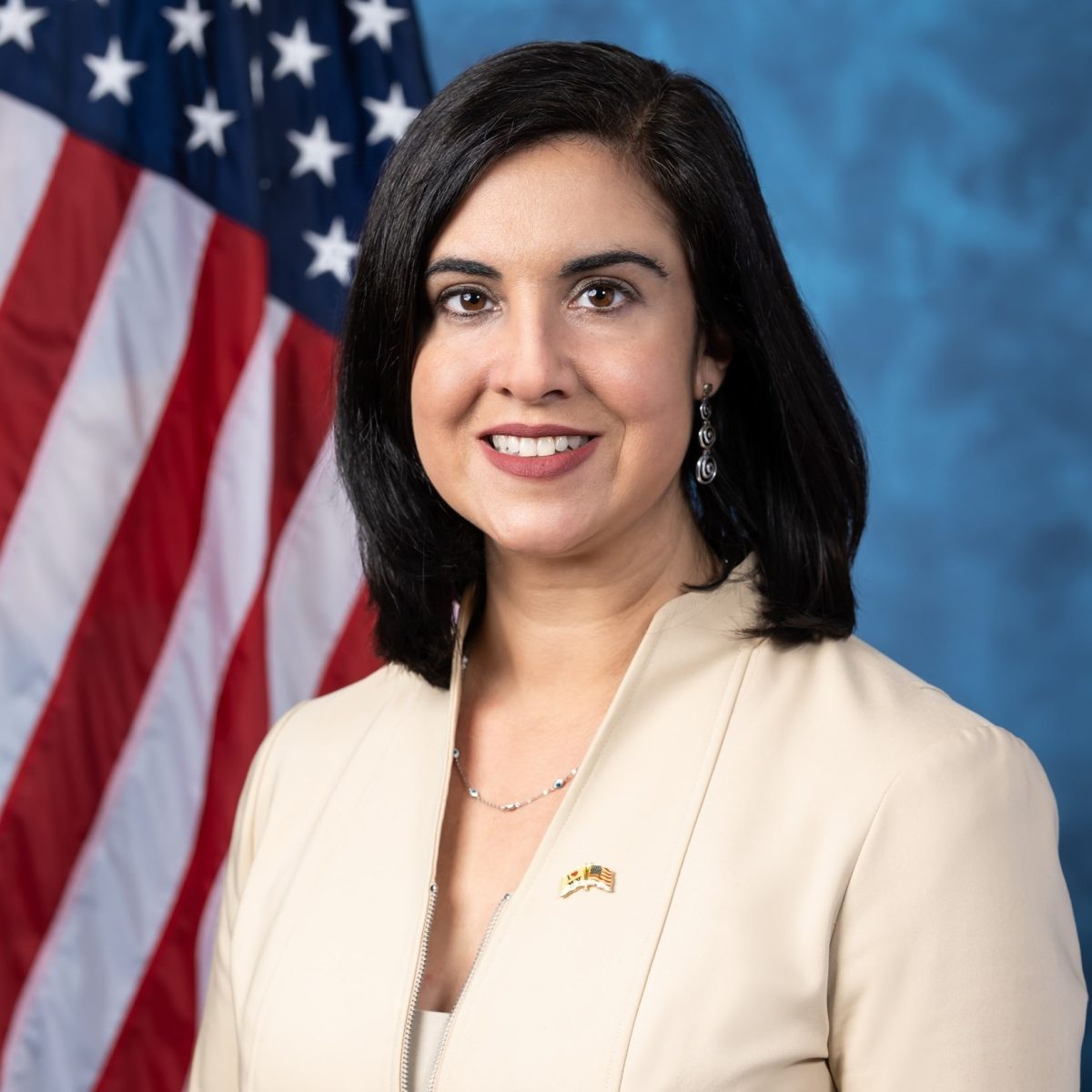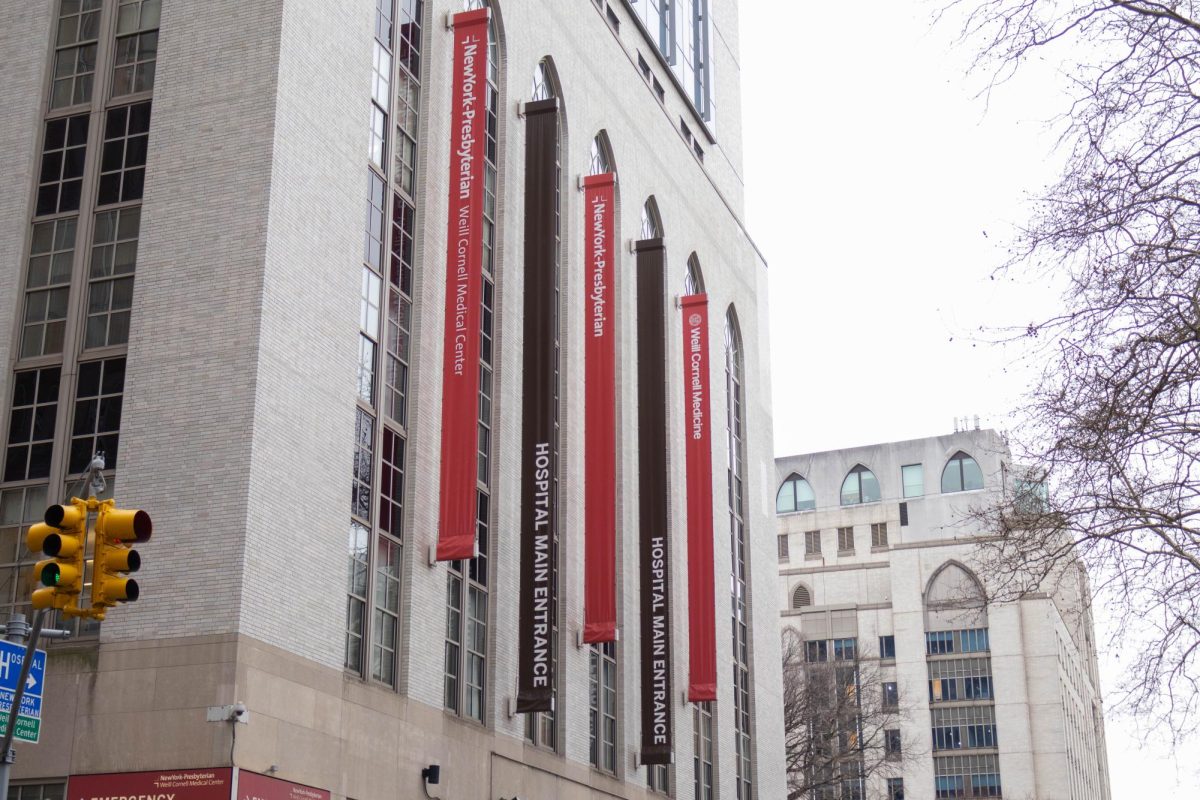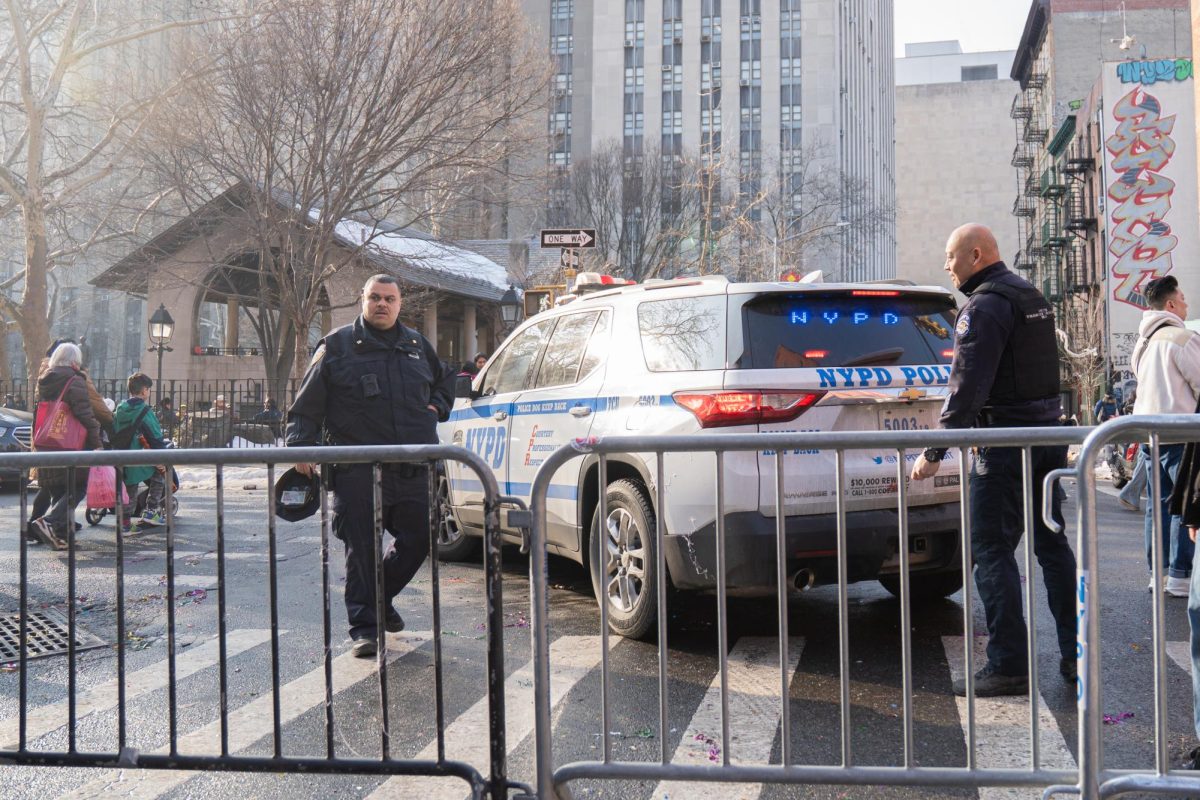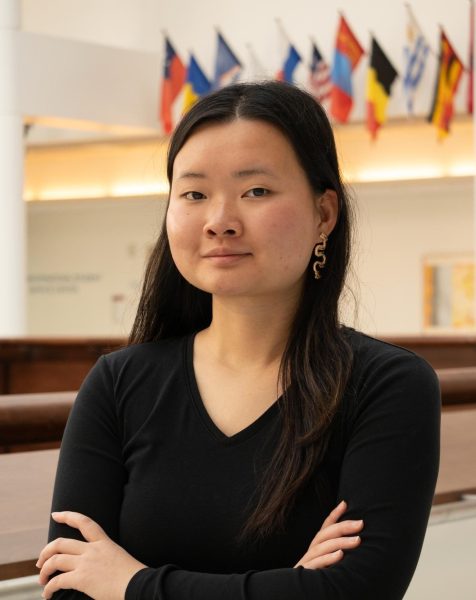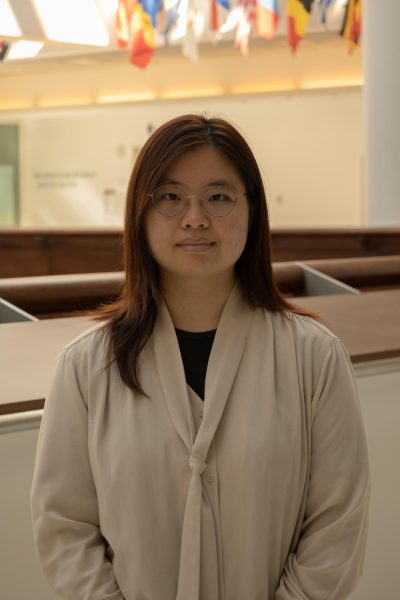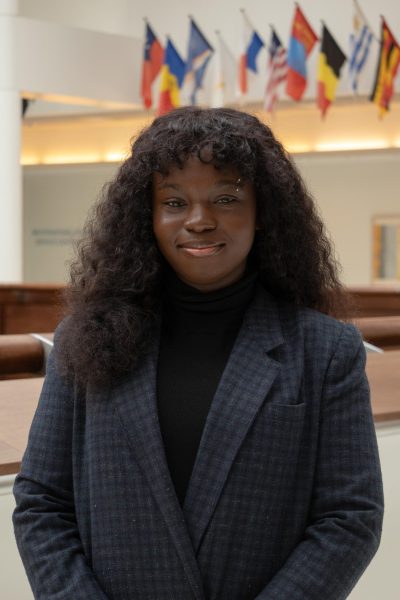TEDxCUNY held its eighth annual conference on May 2 at John Jay College’s Gerald W. Lynch Theater. The conference consisted of nine speakers, each centering this year’s “Fast Track” theme in their talks with anecdotes from their lives, six performances and two workshops. The theme proposed the question: “Will you be a driver of change?” Doors opened at 9 a.m. with talks starting promptly at 9:45 a.m.
Event sponsors distributed swag bags full of merchandise to attendees. Like last year, Baruch College student Christopher Clarke and College of Staten Island student Timothy Golubowski hosted the conference.
Heather Schultz Gittens, a communications professor at Baruch, was one of the speakers. She spoke about her life, the grief of losing her adoptive mother and how it led her on a new journey to find her birth mother in South Korea.
“Although I came back with no new information about my birth time, I learned more about my mom,” she recalled on the TEDx CUNY stage. “My dad gave me a journal that my mom wrote for me from 1984 to 1987. She explained why she named me ‘Heather,’ after the flower.”
In an interview with The Ticker, Schultz Gittens briefly spoke about the memoir she was writing.
“I’m very big on self-help books,” she said. “So, what I plan to do is taking breaking the cycle of grief through communication, making that a self-help book, but weaving in parts of my own story.”
Another speaker was Joel Teron, a student at the Borough of Manhattan Community College graduating with an associate degree in public health.
Teron spoke about how he overcame his drug addiction and turned his life around for the better, even gaining a passion for running.
“Just like every marathon runner has their own pace, every person in recovery has their own path,” Teron said.
“That healing led me to one of the most liberating experiences of my life. As I crossed that finish line at the New York City Marathon, I couldn’t help but reflect on my journey.”
In an interview, he shared how his journey motivated him to return to school in 2023 and talked about the opportunities that followed.
“I went to college years ago [from] 2008 to 2010, didn’t do well, left on academic probation… CUNY helped me realize that that was just one part of my life, and for so many years I thought it was the end… [that] I would never go back to school.”
“But now that I have a better head on my shoulders, I can really focus on what I want to do and benefit from my education, versus so many years ago I didn’t know what I wanted to do … Now I know what’s on the line, so I’m not giving up.”
For those who are considering returning to school or are unsure about their major, Teron offered a piece of advice.
“If you’re lost or you don’t know what to do, I think you don’t realize it, but you’re in a perfect place… get your foot in the door. Get back in the habit. Find what you love… the only way you know what you like and don’t like is by trying.”
Allyson Poyker, a Baruch freshman majoring in finance and a child of Russian immigrants, also had a chance to narrate her story at the conference.
Inspired by an essay she wrote in high school for her senior year English class, her speech focused on the expectations of remaining well versed in one’s native language, the change in her relationship with Russian as she balanced it with English among her friends and family members and her feeling of alienation, along with assimilation into American culture.
“I’ve realized that language is a valuable construct, something I’ve slowly shaped to suit me and my needs in the form of my beloved Runglish,” she said in her talk. “As of now, I use my Russian and my Runglish to communicate with my friends and family in hopes of re-establishing that once close bond I had with my parents [dear old friend].”
When Poyker got the notification that she had been chosen after the interview, she was shocked because she had just started at Baruch a few months prior.
“When I got the email back that I got this position after the interview… I was really surprised,” Poyker said in an interview. “Because I was like, oh my gosh, I just got here. I was like, I’m giving a TED talk? It was surreal.”
She explained the process from start to finish, which consisted of writing a pitch, memorizing it and having weekly rehearsals that eventually became biweekly Zoom rehearsals.
“I’m still so honored to be able to be chosen,” she said. “It really shows that anyone of all ages, a group or any CUNY school is fully capable of receiving such an opportunity, so don’t limit yourself.”
Many of the people working on the event were student volunteers. Jasmine Tom, a first-year mathematics PhD student at the CUNY Graduate Center, is the logistics and engagement curator at TEDxCUNY.
“My role on the team is to pretty much work with my sub-team—the logistics and engagement subteam—to reach out to potential sponsors and see if we could gather free products for our swag bag,” Tom told The Ticker. “That’s kind of what we’ve been doing all year, along with reaching out to tablers and performers.”
TEDxCUNY continues to be a platform for students and professionals to share their thoughts and perspectives with others, as well as inspire their communities.
Applications for next year’s conference will open around October. All CUNY students, regardless of year or background, are encouraged to submit their pitches and outlines for a chance to speak at the TEDxCUNY stage.
Editor’s Note: Maya Demchak-Gottlieb, editor-in-chief of The Ticker, is the co-director of speakers and programming at TEDxCUNY and was not involved in the editorial process of this article.





